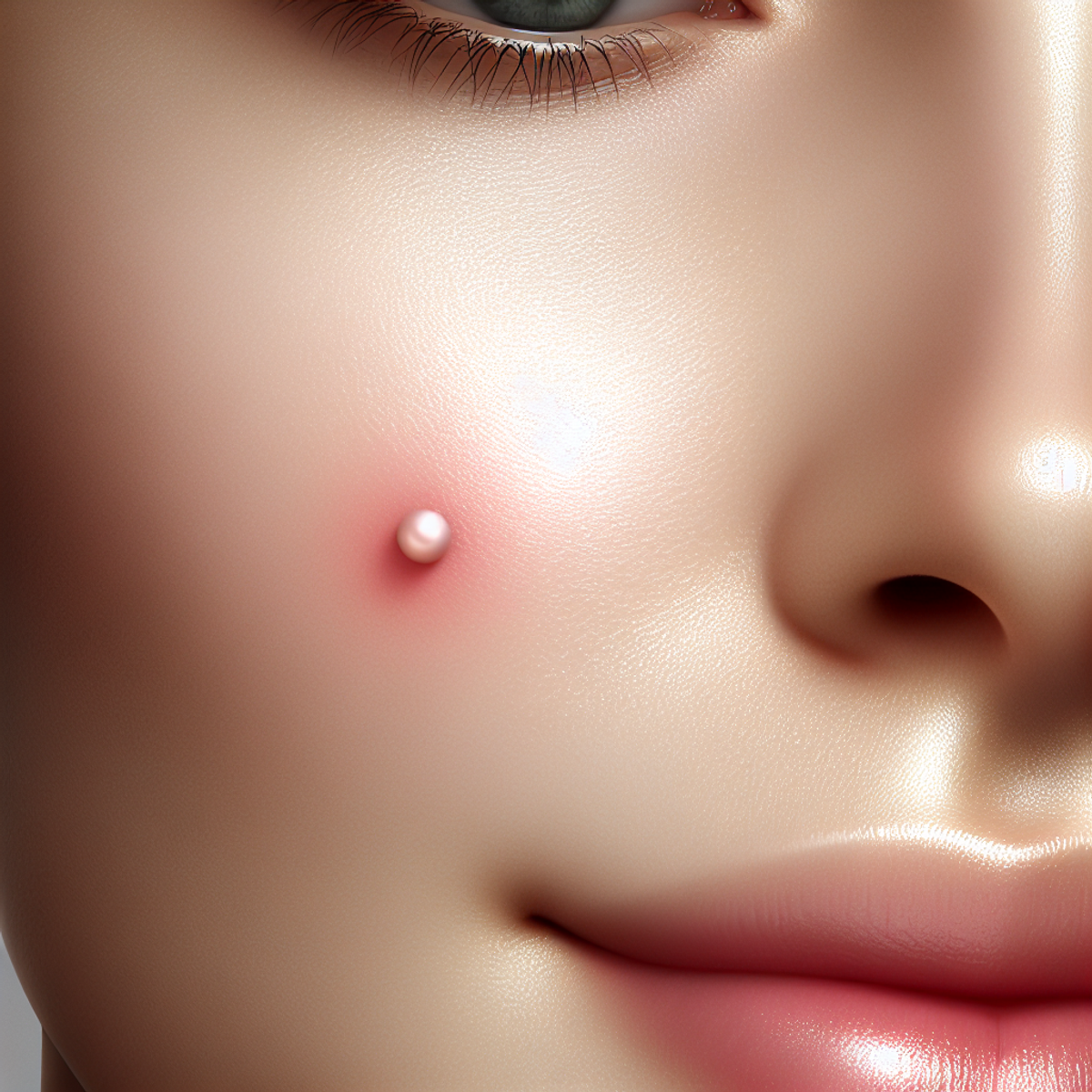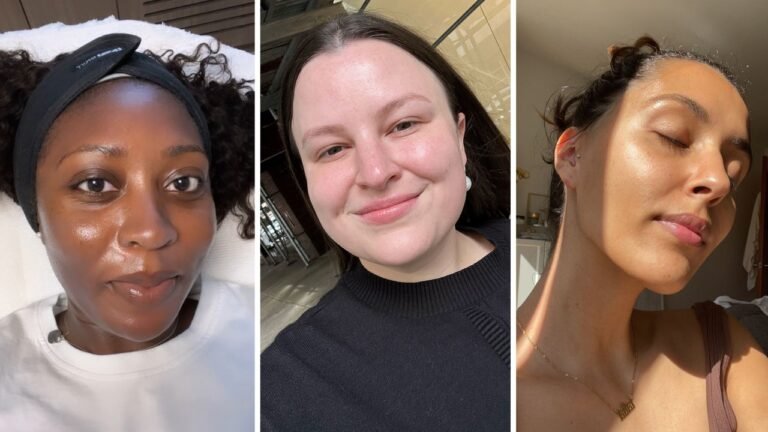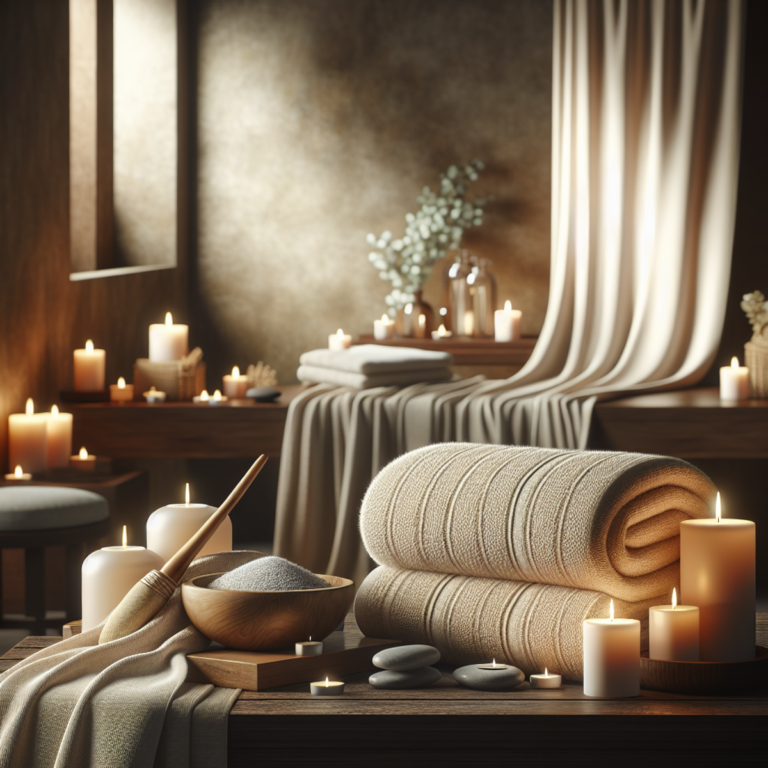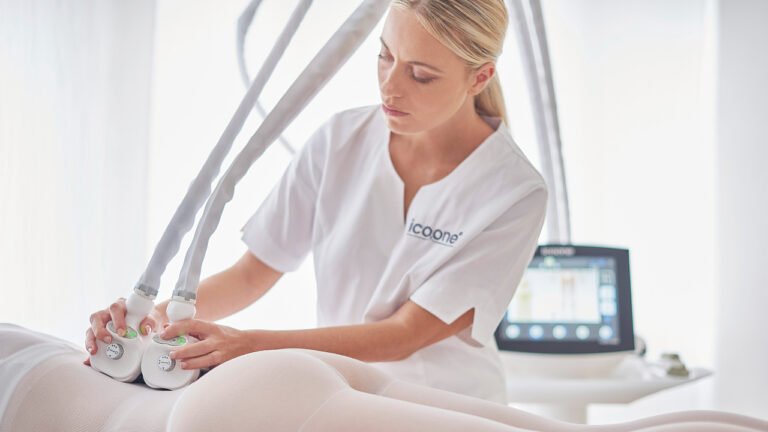Home remedies to get rid of acne

Introduction
Acne is a common skin condition that affects people of all ages, particularly young adults. It can be frustrating and challenging to find effective solutions for acne, as there are numerous factors that contribute to its development. Many people are drawn to the idea of using home remedies for acne treatment, as they offer a natural and affordable alternative to conventional treatments.
In this article, we will explore science-backed home remedies that you can try to get rid of acne naturally. However, it is important to note that severe or persistent acne issues should be addressed by consulting a dermatologist. They can provide personalized advice and prescribe appropriate treatments for your specific condition.
Using home remedies for acne has its appeal, as they often utilize natural ingredients that are easily accessible. Additionally, some individuals may prefer a more holistic approach to skincare. By exploring these science-backed options, you can discover effective ways to address your acne concerns without relying solely on conventional treatments.
Remember, while home remedies can be beneficial for managing mild to moderate acne, it is crucial to consult a dermatologist if you have severe or persistent acne issues. They can provide expert guidance and recommend suitable treatments based on your individual needs.
Understanding Acne
Acne is a common skin condition that affects millions of people worldwide. It occurs when the hair follicles become clogged with oil, dead skin cells, and bacteria. This leads to the formation of various types of lesions on the skin, including whiteheads, blackheads, pimples, and cysts.
Common Causes of Acne
The causes of acne can vary from person to person, but there are several common factors that contribute to its development:
- Excessive sebum production: One of the main causes is excessive production of sebum, an oily substance that helps moisturize the skin. When too much sebum is produced, it can mix with dead skin cells and block the hair follicles, leading to the formation of comedones (plugged pores).
- Hormonal changes: Hormonal changes play a significant role in the development of acne, particularly during puberty when hormone levels fluctuate.
- Dietary factors: Diet can also play a role, with high-glycemic foods and dairy products potentially exacerbating acne symptoms in some individuals.
- Stress: Stress is another trigger for acne breakouts. When we’re stressed, our body releases stress hormones that can increase sebum production and inflammation in the skin.
- Medication side effects: Certain medications, such as corticosteroids and anticonvulsants, may also contribute to acne flare-ups as a side effect.
It’s important to note that while these factors can contribute to acne development, each person’s experience with acne may be unique.
Identifying Acne Lesions
Understanding the different types of acne lesions and their characteristics can help individuals identify their own skin condition correctly and seek appropriate treatment:
- Whiteheads: Closed comedones that appear as small white or flesh-colored bumps on the skin’s surface.
- Blackheads: Open comedones that have a dark appearance due to oxidation of the trapped debris.
- Pimples: Inflamed papules or pustules that are red, tender, and filled with pus.
- Cysts: Deep, painful, pus-filled lesions that can cause scarring.
In the next section, we will explore the pros and cons of conventional acne treatments versus home remedies.
1. Conventional Treatments vs. Home Remedies: Finding the Right Approach
When it comes to treating acne, you may have to choose between conventional treatments or home remedies. Both options have their pros and cons, and finding the right approach depends on your individual needs and preferences. Let’s explore the advantages and disadvantages of conventional acne treatments before diving into the world of home remedies.
Pros and Cons of Conventional Acne Treatments
Conventional acne treatments often involve using topical medications or oral medications prescribed by dermatologists. Here are some commonly prescribed options:
- Topical Medications: These include retinoids, salicylic acid, and benzoyl peroxide. Retinoids work by unclogging pores and promoting cell turnover, while salicylic acid helps to exfoliate the skin and reduce inflammation. Benzoyl peroxide kills acne-causing bacteria. These medications can effectively target different aspects of acne development and are easily accessible over-the-counter or through prescription.
- Oral Medications: In more severe cases or for hormonal acne management, dermatologists may prescribe oral medications such as antibiotics or hormonal birth control pills. Antibiotics help reduce bacterial inflammation, while hormonal birth control pills regulate hormone levels that contribute to acne breakouts.
While conventional treatments can be effective in managing acne, they also come with potential drawbacks:
- Side Effects: Some topical medications may cause skin dryness, redness, or irritation. Oral medications can have side effects such as upset stomach, dizziness, or changes in mood. It’s important to discuss potential side effects with your healthcare provider before starting any treatment.
- Medical Supervision: Certain oral medications require regular monitoring by a healthcare professional due to potential risks or interactions with other medications.
- Costs: Depending on your insurance coverage, conventional treatments can be expensive, especially if you require prolonged use or multiple medications.
The Science behind Home Remedies for Acne
While scientific research on specific home remedies for acne may be limited, some natural ingredients have shown promise in addressing key factors that contribute to acne development. These include anti-inflammatory properties to soothe redness and swelling, as well as antibacterial effects to target acne-causing bacteria. It’s important to note that home remedies may not work for everyone and their effectiveness can vary based on individual skin types and conditions.
In the next section, we will explore tried and tested home remedies that you can try to naturally get rid of acne. These remedies have gained popularity due to their accessibility and potential benefits. Remember to consult with a healthcare professional or dermatologist before incorporating any new treatment into your skincare routine, especially if you have sensitive skin or existing medical conditions.
The Science behind Home Remedies for Acne
While there may not be extensive research on specific home remedies for acne, certain natural ingredients have demonstrated potential in addressing the main factors that contribute to acne formation. These factors include:
- Anti-inflammatory properties: to soothe redness and swelling
- Antibacterial effects: to target acne-causing bacteria
2. Tried and Tested Home Remedies to Get Rid of Acne Naturally
When it comes to natural remedies for acne, there are several options that many individuals have tried and found effective. These remedies often use ingredients with known properties that can help with acne, such as reducing inflammation and fighting bacteria. In this section, we will discuss some of these home remedies in detail.
a) Apple Cider Vinegar for Clearer Skin
Apple cider vinegar is a popular choice for those looking for a natural solution to acne. It contains acetic acid, which can help balance the pH of the skin and prevent the growth of acne-causing bacteria. Here’s how you can use apple cider vinegar effectively:
- Dilute apple cider vinegar with water in a ratio of 1:3 or 1:4.
- After washing your face, apply the diluted solution to your skin using a cotton pad or ball.
- Leave it on for about 5-20 seconds, depending on how sensitive your skin is.
- Wash it off thoroughly with water and gently dry your skin.
- Apply a light moisturizer afterwards to prevent dryness.
Note: Before using apple cider vinegar on your face, it’s important to do a patch test first to make sure you don’t have any negative reactions. If you have sensitive skin, it’s also recommended to dilute the solution even more or consult with a dermatologist.
b) Tea Tree Oil: Nature’s Antibacterial Remedy
Tea tree oil is well-known for its ability to kill bacteria and reduce inflammation. This is mainly because of a compound called terpinen-4-ol. To use tea tree oil effectively:
- Mix 1 part tea tree oil with 9 parts water or carrier oil (such as jojoba oil or coconut oil).
- Dip a cotton swab into the diluted mixture and apply it directly to the acne spots.
- Leave it on for about 10-15 minutes.
- Rinse it off with water and gently dry your skin.
- Apply a non-comedogenic moisturizer afterwards.
Note: Tea tree oil is strong, so it’s important to dilute it before using it on your skin. Doing a patch test beforehand is also advisable, especially if you have sensitive skin.
c) Green Tea: A Soothing Remedy
Green tea is not only a popular drink but also a home remedy that can help with acne-prone skin. It contains antioxidants and anti-inflammatory compounds that can reduce redness and inflammation caused by acne. Here’s how you can use green tea:
- Make a cup of green tea as usual.
- Let the tea cool down completely.
- Use a cotton ball or pad to apply the green tea to your face or acne areas.
- Leave it on for about 10-15 minutes.
- Rinse it off with water and gently dry your skin.
Note: You can also refrigerate the brewed green tea for extra soothing effects when applied to your skin.
By adding these tried and tested home remedies to your skincare routine, you may see improvements in your acne naturally. However, it’s important to remember that everyone’s skin is different, and what works for one person may not work for another. If you don’t see any changes or experience negative reactions, it’s always best to consult with a dermatologist for personalized advice and treatment options.
b) Tea Tree Oil: Nature’s Antibacterial Remedy
Tea tree oil is another popular home remedy for acne due to its natural antibacterial properties. It contains a key compound called terpinen-4-ol, which has been found to effectively combat acne-causing bacteria. Here are some key points about tea tree oil as an acne treatment:
- Antimicrobial properties: Tea tree oil has been shown to possess antimicrobial activity against various types of bacteria, including the bacteria that contribute to acne development. The terpinen-4-ol in tea tree oil helps to kill off these bacteria, reducing inflammation and preventing further breakouts.
- Diluted application: Tea tree oil is highly concentrated and can potentially irritate the skin if used undiluted. It is important to dilute tea tree oil with a carrier oil before applying it to the skin. A good ratio is 1 part tea tree oil to 9 parts carrier oil (such as jojoba oil or coconut oil). This diluted mixture can be applied directly to acne lesions using a cotton swab or clean fingertips.
- Homemade face masks: Tea tree oil can also be incorporated into homemade face masks for a more targeted acne treatment. For example, you can mix a few drops of tea tree oil with ingredients like honey, yogurt, or clay to create a soothing and clarifying mask. Apply the mask to clean skin and leave it on for 10-15 minutes before rinsing off with warm water.
It is important to note that while tea tree oil can be effective in treating mild to moderate acne, it may not be suitable for everyone. Some individuals may experience skin irritation or allergic reactions when using tea tree oil. Therefore, it is recommended to perform a patch test on a small area of skin before using tea tree oil extensively.
In addition to tea tree oil, there are other home remedies that can help in managing acne. For example, green tea has anti-inflammatory and antioxidant properties that may benefit acne-prone skin. Applying cooled green tea as a toner or using it as an ingredient in homemade face masks can help soothe inflammation and improve overall skin health.
Remember, home remedies may not work for everyone and results can vary. It is always a good idea to consult with a dermatologist if you have persistent or severe acne. They can provide personalized recommendations and prescribe appropriate treatments based on your specific needs.
c) Using Green Tea for Healthy Skin
Green tea is not only a soothing beverage but also a beneficial remedy for acne-prone skin. Its antioxidant and anti-inflammatory properties make it an excellent addition to your skincare routine.
1. Antioxidant Benefits
Green tea contains powerful antioxidants called catechins, which help fight free radicals and reduce skin inflammation. This can be particularly beneficial for calming redness and irritation associated with acne breakouts.
2. Topical Application
You can harness the benefits of green tea by incorporating it into your skincare regimen. Consider brewing a strong cup of green tea, allowing it to cool, and using it as a facial toner. The gentle application of green tea can help soothe and refresh your skin while delivering its antioxidant goodness.
3. Soothing Compress
Another way to utilize green tea is by using chilled tea bags as a soothing compress for inflamed breakouts. Simply refrigerate used green tea bags and place them on areas of redness or swelling for a calming effect.
When exploring new home remedies for acne, including green tea, it’s essential to conduct a patch test to ensure compatibility with your skin. If any irritation occurs, discontinue use immediately.
By incorporating the power of green tea into your skincare routine, you can take advantage of its natural properties from the benefits it offers to the skin, promoting healthier, clearer skin.
3. Other Lifestyle Factors and Practices to Support Acne Healing
When it comes to managing acne, addressing lifestyle factors and practices is essential for supporting the healing process. Let’s explore the role of diet and stress management in acne prevention and management.
The Role of Diet in Acne Formation and Prevention
- High Sugar and Carbohydrate Intake: Diets high in sugar and refined carbohydrates can lead to increased insulin levels, which may contribute to excess sebum production and inflammation, exacerbating acne. It’s important to limit the consumption of sugary snacks, sodas, and processed foods. This study provides further insights into the link between diet and acne.
- Dairy Products: Some dairy products contain hormones that can stimulate oil glands in the skin, leading to clogged pores and acne breakouts. Consider reducing the intake of milk, cheese, and other high-fat dairy products to see if it has an impact on your skin. Here is a helpful resource from Everyday Health that delves deeper into the relationship between diet and acne.
Tip: Emphasize a Balanced Diet
A balanced diet rich in whole foods such as fruits, vegetables, lean protein, and healthy fats can provide essential nutrients for skin health. Omega-3 fatty acids found in fish, chia seeds, and walnuts have anti-inflammatory properties that may benefit individuals with acne-prone skin. For more information on how diet influences acne formation, this research article offers comprehensive insights.
By making mindful choices about what you eat, you can positively influence your skin’s health and reduce the likelihood of acne breakouts.
Stress Reduction Techniques for a Clearer Mind and Complexion
Chronic stress not only affects our mental well-being but can also harm our skin. Studies show a connection between stress and the severity of acne breakouts. That’s why it’s important to learn how to manage stress effectively, especially if you’re dealing with acne. Here are some techniques that can help:
1. Mindfulness Meditation
Engaging in mindfulness meditation has been proven to reduce stress levels and improve overall well-being. This practice involves focusing on the present moment, acknowledging and accepting your thoughts and feelings without judgment.
By incorporating mindfulness meditation into your daily routine, you can calm your mind, reduce anxiety, and alleviate stress-related acne flare-ups.
2. Exercise
Regular exercise is not only good for your physical health but also plays a significant role in managing stress levels. Physical activity stimulates the production of endorphins, which are known as “feel-good” hormones. These endorphins help combat stress and promote a sense of well-being.
Whether it’s going for a run, practicing yoga, or participating in team sports, finding an exercise routine that suits your preferences can be an effective way to reduce stress and improve your skin’s appearance.
3. Adequate Sleep
Getting enough quality sleep is essential for both your mental health and skin condition. Lack of sleep can increase stress levels and trigger hormonal imbalances, leading to acne breakouts.
Ensure you establish a consistent sleep schedule and create a relaxing bedtime routine to promote better sleep hygiene. Aim for 7-9 hours of uninterrupted sleep each night to give your body the time it needs to rejuvenate.
In addition to these stress reduction techniques, it’s important to adopt good skincare habits as part of your overall acne management strategy. While topical remedies can be helpful in combating acne externally, addressing internal imbalances and maintaining a proper skincare routine are equally important for long-term results. Here are some additional tips:
1. Follow a Balanced Diet
A healthy diet plays a crucial role in managing acne. Opt for a diet rich in whole foods, including fruits, vegetables, lean proteins, and omega-3 fatty acids. Avoid excessive consumption of sugary and high-glycemic-index foods, as they can contribute to inflammation and worsen acne symptoms.
2. Practice Good Skincare Habits
Establishing a consistent skincare routine can help keep your skin clean and free from excess oil and debris. Wash your face twice daily using a gentle cleanser suitable for your skin type. Avoid using harsh scrubbing motions or abrasive products that can irritate the skin. After cleansing, apply a non-comedogenic moisturizer to keep your skin hydrated without clogging pores.
Remember, stress reduction techniques and a proper skincare routine should be complemented by other lifestyle changes to effectively manage acne. Be patient with the process and consult with a dermatologist if your acne persists or becomes severe.
By incorporating these stress reduction techniques into your daily life and adopting a holistic approach to acne management, you can achieve clearer skin and improve your overall well-being.
Skincare Habits to Avoid Breakouts and Aid Recovery
When it comes to managing acne, it’s important to recognize that skincare habits play a crucial role alongside topical remedies and lifestyle changes. By addressing internal imbalances and adopting good skincare practices, you can significantly aid the long-term management of acne.
Importance of Gentle Cleansing
- Emphasize the significance of gentle cleansing in removing excess oil, dirt, and impurities without stripping the skin of its natural moisture.
- Highlight that harsh scrubbing or over-cleansing can irritate the skin and aggravate acne lesions.
Non-Comedogenic Skincare Products
- Educate readers about the value of using non-comedogenic (non-pore-clogging) skincare products to prevent pore blockages that contribute to acne development.
- Provide examples of non-comedogenic moisturizers, sunscreens, and makeup options that can help maintain clear pores.
Sun Protection for Acne-Prone Skin
- Stress the importance of sun protection, as exposure to UV radiation can lead to inflammation and potential worsening of acne symptoms.
- Encourage the use of non-comedogenic sunscreen with at least SPF 30 for adequate protection without clogging pores.
By incorporating these skincare habits into your daily routine, you can complement other acne management strategies and promote healthier, clearer skin.
Knowing When to Seek Professional Advice
While mild to moderate acne can often be managed with home remedies and lifestyle changes, severe or persistent cases may require medical intervention. It’s important to recognize when it’s appropriate to consult a dermatologist for further evaluation and discuss potential treatment options like prescription medications or procedures.
Here are some key indicators that suggest the need for professional help with severe acne:
- Persistent Symptoms: If your acne doesn’t show signs of improvement after several weeks of home remedy and lifestyle changes, seeking professional advice is crucial. Dermatologists can assess the severity of your condition and recommend targeted treatments.
- Painful or Inflamed Lesions: Severe acne can manifest as painful, deep cysts or nodules, which carry a higher risk of scarring and may require medical intervention for effective management.
- Psychological Impact: Acne can significantly impact an individual’s self-esteem and mental well-being, especially when it becomes severe. Seeking professional help can address both the physical and emotional aspects of the condition.
- Scarring Risk: If you notice persistent scarring or dark spots resulting from acne lesions, consulting a dermatologist can help prevent further scarring and address existing marks through appropriate treatment modalities.
- Medical History: Individuals with underlying health conditions or specific medication regimens may require personalized acne management under medical supervision to avoid potential interactions or worsening of pre-existing conditions.
When you seek professional advice for severe acne, dermatologists may recommend the following interventions based on individual assessment:
- Prescription Medications: Topical or oral medications like retinoids, antibiotics, or hormonal therapies may be prescribed to effectively target severe acne lesions and underlying causes.
- Procedural Treatments: Dermatological procedures such as laser therapy, chemical peels, or extraction of large cysts can be recommended for severe cases to accelerate healing and minimize scarring risk.
It’s important to remember that each individual’s experience with acne is unique, and what works for one person may not work for another. Consulting a dermatologist ensures personalized care tailored to your specific skin needs and concerns.
In summary, while home remedies and proactive skincare habits play a significant role in managing mild to moderate acne, recognizing the need for professional help in severe cases is essential for effective treatment and long-term skin health. For further information on the current issues in the treatment of acne vulgaris, you can refer to this pediatrics article, which provides valuable insights into advanced treatment approaches.
Conclusion
It’s important to remember that while home remedies can work well for some people, they may not be effective for everyone. It’s always a good idea to consult with a dermatologist before trying any new skincare routine or treatment, especially if you have sensitive skin or severe acne.
Here are some key takeaways from this article:
- Diet and Lifestyle Changes: Eating a balanced diet, staying hydrated, getting enough sleep, and managing stress can all contribute to better skin health.
- Proper Skincare Routine: Cleansing your face twice a day, using non-comedogenic products, and avoiding harsh ingredients can help prevent breakouts.
- Natural Remedies: Some natural ingredients like tea tree oil, witch hazel, and aloe vera may have anti-inflammatory or antibacterial properties that can be beneficial for acne-prone skin.
- Over-the-Counter Products: Look for acne treatments containing ingredients like benzoyl peroxide or salicylic acid, which can help unclog pores and reduce inflammation.
- Prescription Medications: In more severe cases of acne, a dermatologist may prescribe oral medications (such as antibiotics or isotretinoin) or topical treatments (like retinoids) to help control breakouts.
Remember that consistency is key when it comes to skincare. It may take time to see results from any new routine or treatment, so be patient and give it a chance to work.
Always consult with a healthcare professional or dermatologist before starting any new skincare regimen or if you have any concerns about your skin.










